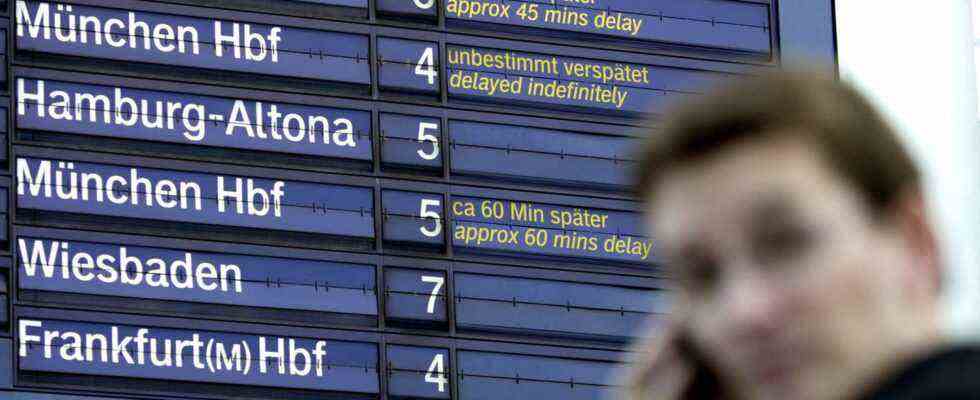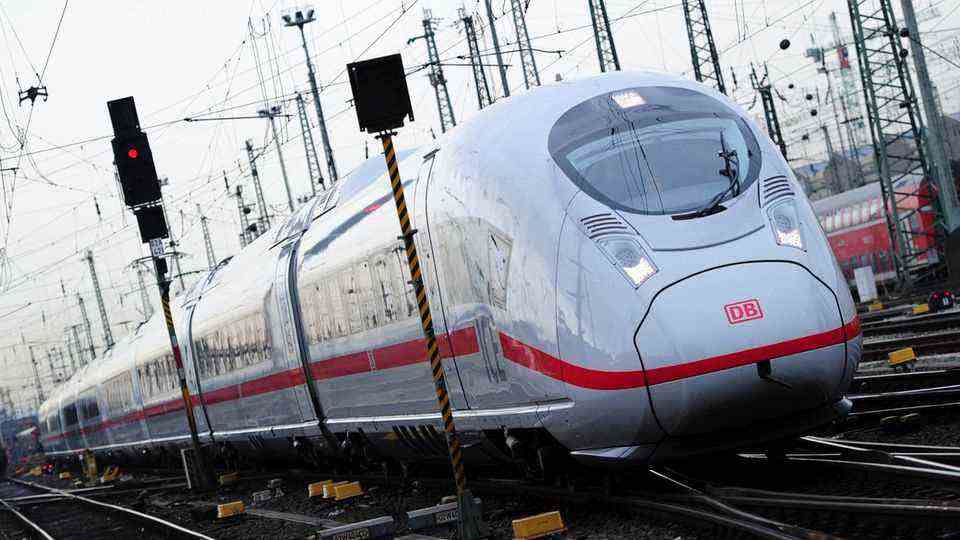Track Bingo of Delay Explanations
Why there are no more “delays in the operational process” with the railways
If the timetable gets out of sync, it says: “Please heed the loudspeaker announcements”.
© Imago Images
If you travel with Deutsche Bahn, you have to expect delays. In long-distance transport, the punctuality statistics deteriorated again in 2021. But there are now new announcements for justifying the unpunctuality.
Another setback in long-distance travel: in 2021, only 75.2 percent of ICE and IC trains reached their destinations on time. In the previous year, punctuality was almost 82 percent, the highest it had been in 15 years. A train is considered late in the statistics if it arrives at its destination more than six minutes late.
In the second year of Corona, Deutsche Bahn speaks of “disruptive factors of historic proportions” and cites a variety of reasons: A flood of the century destroyed the infrastructure to an unprecedented extent in one fell swoop. In addition, the company was confronted with three waves of strikes by the train drivers’ union, one of “the toughest wage disputes in its history”.
Even without these exceptions, rail transport is no longer reliable. Travelers know only too well from their own experience how punctual the trains are in everyday life. An optimization is not in sight; however, external communication has improved. Train conductors and stations react more quickly to delays and also state the reasons. The staff draws on a repertoire that train travelers have long been familiar with. The rhetorical plate ranges from “people in the track bed” to a “technical fault” to “late arrival of the staff”.
Justifications track bingo
Customers often have the impression that it is a matter of reading a list of ten possible causes of trouble, which is always dug out when “the onward journey is delayed” – hopefully not to “indefinitely”, the horror word that nobody wants to hear.
Milestones in long-distance transport: 30 years of ICE in pictures
21 images
Train attendants seem to be playing verbal train bingo, choosing this sentence and that sentence. But Deutsche Bahn would like to become more customer-friendly with immediate effect and has dispensed with cumbersome announcements like this: “Due to delays in operations, our train has come to a standstill.”
Self-critically, the railroad managers come to the conclusion that the term “delays in the operational process” was often used for “as yet unknown reasons for the delay”, “but nobody understood it. That’s why it is deleted without further ado!”
Instead, the customer is now communicated in a more differentiated and understandable way. Now it says “More information coming soon”. Internally, there is a 48-page paper for the “coding of additional delays in rail operations”. This should help to identify and eliminate the causes.
The reasons for train delays are not new, but “their wording has been revised,” according to an external paper. Since 2019, workshops and tests have been held with more than 800 rail customers and employees, “with the goal: away from rail German, towards comprehensibility and sympathy.”
This may be seen as a step in the right direction. But due to linguistic cosmetics, no ICE has progressed faster and caught up with a delay.
User “Kruemelmonster” is less enthusiastic about the new announcements. His train was recently stuck at a station for two hours. “During these 2 hours, a whopping 5 (FIVE) DIFFERENT reasons were given why it didn’t go on,” he writes on bahn.de. “Since then, my trust in the credibility of any reason for the delay has been irrevocably destroyed.”
sources: www.deutschebahn.com, www.zugfinder.net
Also read:
– Inexpensive train tickets: For 12.90 euros on the ICE across Germany
– 3G rule in passenger transport: what passengers need to know now
– Night trains instead of flights: How the corona crisis is accelerating the renaissance of the sleeping car



